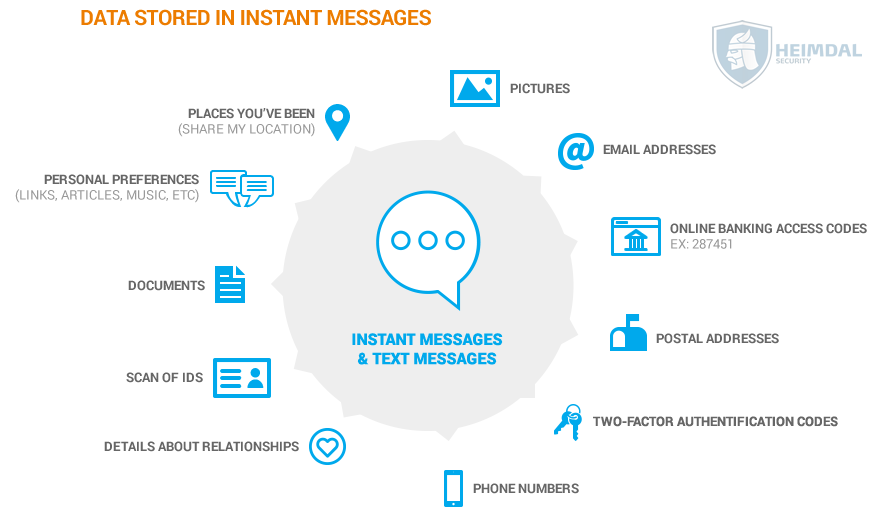
If you want to see all the
best encrypted messaging apps in one place, then this is the guide you’re
looking for.
We did a roundup of these
encrypted apps because the battle for our data is fiercer than ever.
Governments crave for it, companies seek access to it, and cyber criminals
probably want it the most.
But what’s so special about my
data?
The fact that it’s yours and
it can be monetized one way or another, by any of the entities listed above.
Wake-up call: the data you
share in your IMs
Today I’m going to focus on a
big chunk of your data that I bet you disregard as unimportant: the information
stored and share in instant messages and text messages.
Messaging, either via the
Internet or through good, ol’ SMSs, is today’s go-to communication method. No
doubt about it.
Younger generations – from Y
to Z – would rather text than call someone at any time of day and night (myself
included). And not only them. Employees in companies of all types and sizes are
heavily using instant messaging apps as well.
This means that a huge amount
of data is stored, transmitted and shared through these messages.
Data like:

And this doesn’t happen only
on mobile devices. Now instant messaging apps are cross-platform, so you can
sync your conversation across your smartphone, tablet and desktop. Messaging
apps also offer the option to be used for both online IMs and SMSs.
Everything is just a click or
a tap away. But not only for you.
You may think you’re sharing
data confidentially when using Facebook Messenger, Skype or Snapchat, but
sometimes it’s just an illusion.
Without end-to-end encryption,
your conversations are right in the crosshairs of cyber criminals, government
meddling and amoral marketers.
Here’s a recent example of how
security holes in these apps can expose your data to malware and other cyber
threats:
“The Check Point security
research team discovered a vulnerability in Facebook’s Messenger (both the
online version and the mobile app) that would allow an attacker to modify the
contents of someone’s chat history as well as give them the ability to spread
malware through the chat service. […] This vulnerability existed because
messages are normally stored on Facebook’s servers, and Facebook could also
modify the messages itself if it so desired. The attackers are simply using a
capability that Facebook already has. “
Do I have your attention now?
Good.
Because you’re going to want
to find out about this.
CONTINUE HERE to find out more…
Geen opmerkingen:
Een reactie posten